
views
- A low libido can be caused by many things, including stress and relationship problems.
- It might also be caused by hormonal changes or by certain medications.
- Talk to your husband and explain how you’ve been feeling, then work on figuring out why you’ve been feeling that way.
- Connect with your husband by going out on dates and focusing on romance even when you two aren’t having sex.
Reasons for a Low Sex Drive

Stress If you’re overwhelmed with your job, your kids, and your responsibilities, it’s no wonder why you’d have a lower sex drive than usual. Long-term stress makes our body go into survival mode, which doesn’t leave much room for sex or sexual activities. Do you often come home feeling exhausted, wiped out, or overwhelmed? Do you feel like you have no time for yourself? Those are key indicators that your stress levels are fairly high.

Relationship problems How are you and your husband doing overall? If your relationship is on the rocks or you’re fighting more than usual, you might just not be in the mood to have sex all that often. Usually, working through these issues will raise your libido because you’ll feel closer and more connected to your partner.

Aging As we get older, our bodies (and our hormones) change. Men produce less testosterone, which can make their sex drive lower. Women may be going through menopause, which can lower a sex drive. Age-related health problems can also make you less active in the bedroom, causing a decline in sex overall.

Hormonal changes Menopause causes a drop in estrogen, which can lead to a lower libido and dry vaginal tissue. Similarly, pregnancy and breastfeeding cause hormone levels to fluctuate, leading to fatigue, body changes, and a low libido. If you’ve noticed any changes within your body that are related to your hormone levels (like a change in your menopausal cycle), it’s worth talking to your doctor to see if anything is wrong.
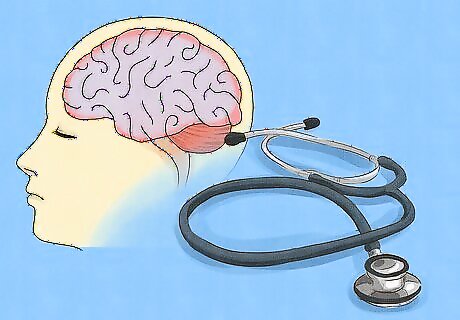
Mental health issues Depression and anxiety (along with a slew of other mental health diagnoses) can lead to a lowered libido and lowered energy levels overall. If you’re working through some mental health issues, rest assured that they are probably the cause of your change in sex drive. Mental health issues can also be triggered or exacerbated by outside factors, like stress or relationship problems.
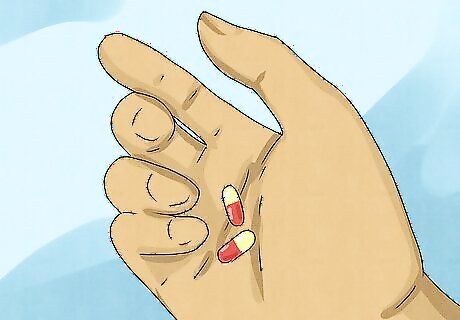
Medication Certain medications can cause a lowered libido, especially medications for mental health issues. If you recently started a new medication and have noticed a change in your sex drive, talk to your doctor about it.
Communicating with Your Husband

Tell your husband what you’ve been going through. The number one thing to remember here is that communication is key. Sit down with your husband and let him know that you just don’t have a sex drive, then list a few reasons why that might be. If he understands why you have no sexual desire right now, he may be less upset. “You’ve probably noticed that I haven’t been wanting to have as much sex lately, and I wanted to tell you why. I think that I’ve just been super overwhelmed with my new job and with the kids, so I haven’t had much time to think about sex.” “I know we haven’t been having sex as much, and that’s because of me. I wanted to explain that while I’m going through menopause, my hormones are a little out of whack, which sometimes makes my sex drive do weird things.” Your husband may be upset that you two aren’t connecting as much, which is valid. But he should also care about why your sex drive has gotten lower so he can help you with any issues that you’re having.

Talk about your sexual needs. For some people, a lack of sex drive is due to not feeling satisfied in the bedroom. If you feel like your needs aren’t met, talk to your husband about it. It’s important to have open and honest conversations about sex so that both you and your husband enjoy the experience. “Honey, could we talk? I wanted to have an honest conversation about our sex life. I feel like my needs aren't being met, which makes me feel a little left out.” “I know you have a great time in the bedroom, and I want to feel that way, too. Could we talk about how I could be more satisfied?”

Address any underlying relationship problems. If your lack of libido is due to relationship issues, then it’s unlikely to get better until you both work through those things. Talk to your husband about what’s been going on, and come up with ways that you can both work on your relationship together. “Our marriage has been a little rocky lately, which we’ve both realized. I think that our issues that we’ve been putting on the backburner have made me a bit reluctant to have sex.” “I really want to work on feeling closer and more connected with you. I think the more we do that, the more excited I’ll be to have sex with you.” If you’ve tried working through your problems without much success, talk to a couple’s counselor. They can give you an unbiased, third-party opinion to help you resolve your issues.
How important is sex in a relationship?

Most people consider sex to be a very important part of an intimate relationship. While relationships can work without sex, most people who are in a romantic relationship place a lot of value on having sex with their partner. This is because sex is a bonding experience: every time you engage in sexual activity, you feel closer to each other, both physically and emotionally.
Can a sexless marriage survive?

A sexless marriage can work as long as both partners are happy. There are many reasons why a couple might stay in a sexless marriage, including asexuality, equally low sex drives, and more. If you and your husband have talked about your lack of sex and you both are content with it, then there’s no reason to change.
How to Raise Your Libido
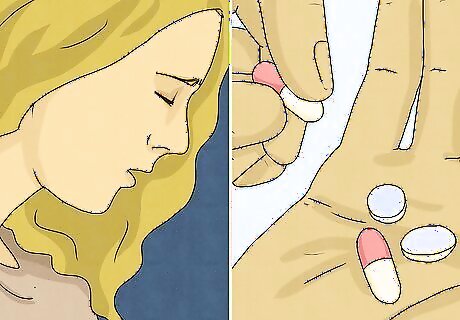
Figure out why your libido is low. There are many reasons why your sex drive may have decreased, and figuring out exactly which one it is will help a lot. Spend some time thinking about your current situation: are you stressed? Are you unhappy in your relationship? Are there other factors affecting your mental health? You might not know exactly why your sex drive has lowered, and that’s okay. Consider talking to a therapist to help you figure out any underlying causes and what you can do about them.

Reduce your stress levels. Staying calm and relaxed helps in almost any situation, and that includes increasing your libido. Try exercising regularly, and doing things like meditation or deep breathing exercises whenever you feel anxious or stressed. Over time, your stress levels will decrease, and your sex drive may come back as well.

Spice things up in the bedroom. It could be that your lack of a sex drive is because you’re in a bit of a rut. If you’re feeling bored of your sex life, talk to your husband about ways that you might mix it up. You could wear a new outfit, buy a new toy, or even try roleplay (as long as you’re both comfortable with it, of course).

Connect with your husband in other ways. Being intimate together doesn’t have to mean having sex. If you still don’t have a sex drive right now, talk to your husband about other ways you two can connect. Go out on dates, have deep conversations and hug each other often to feel closer. Find an activity that you two enjoy doing together, like hiking or gaming. The more you can connect with each other, the better.
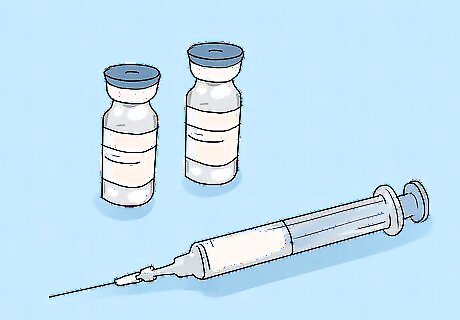
Try hormone therapy for hormone imbalances. If your low sex drive is caused by menopause or another hormone issue, there are medical treatments you can try. Talk to your doctor about doing hormone therapy or vaginal estrogen to improve your hormone balance and treat some of the symptoms of menopause. As with most medical treatments, hormone therapy does come with some risks. Be sure to talk with your doctor and weigh the pros and cons before signing up for treatment.

Make an appointment with your doctor. If you think your low libido might be caused by a health issue, hormonal imbalance, or a medication, talk to your doctor. They can run some tests or talk about side effects of your medication with you, then discuss your treatment options going forward.
















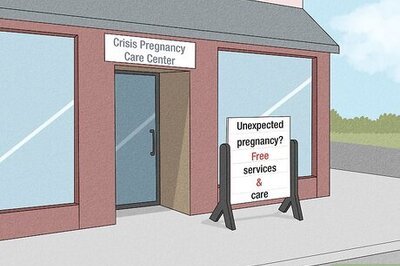
Comments
0 comment